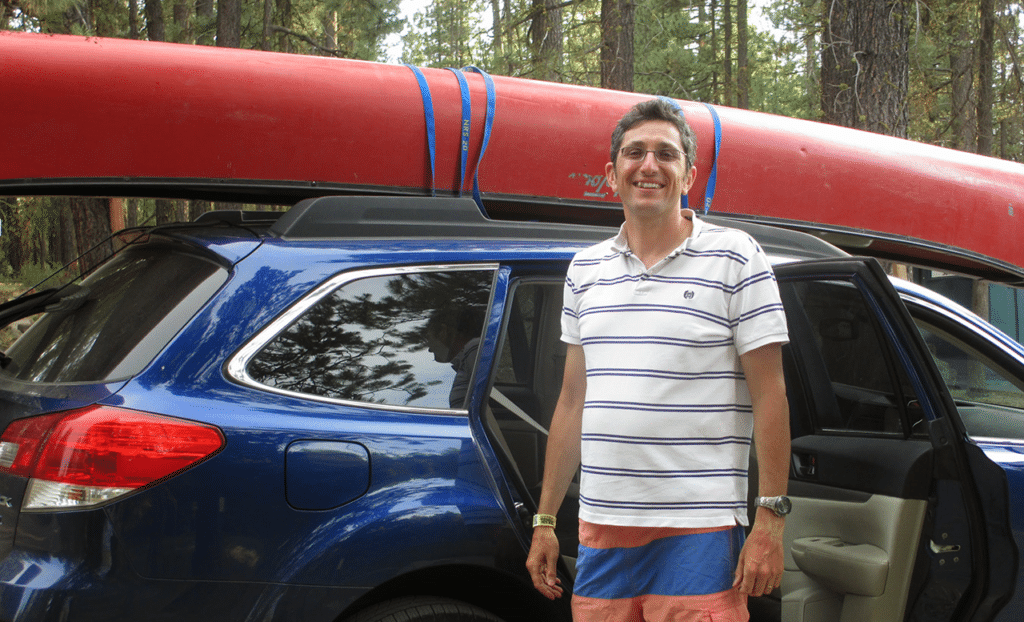When we chose Learning for the Jobs of Today, Tomorrow, and Beyond as our Intersect 2017 conference theme, we were thinking about the journey from learning to a job at a fairly high level, as we wanted to embrace something that would resonate through every aspect of the conference.
Once the planning stages were largely behind us, we were able to really start looking at the meaning of this theme at eye-level, and thinking about what it means to each individual student.
We found ourselves in particular thinking about our Self-Driving Car Engineer Nanodegree program students, as in many ways they are preparing themselves for an industry that is still in the imagination stages! Self-driving cars are coming. We know this, as do our students. But the roles they’re now preparing for truly are the jobs of tomorrow.
Or are they?
As it turns out, that’s not quite accurate. A great many of our students have in fact already landed jobs in this emerging industry!
We’d like to share a few of their stories with you, starting with Robert Ioffe. Robert enrolled in our program in October of 2016. In January of 2017, he started his new role as a Self-Driving Car Software Engineer at Intel Labs! Incredible, right?
Robert’s whole story is pretty remarkable. Here is Robert in his own words:
I am from Riga, Latvia. I attended The University of Latvia for 3 years, studying Theoretical Physics. I came to the USA as a refugee with my parents and my sister in 1992, right after the disintegration of the USSR. I had $40 in my pocket. I worked as a dishwasher and a line cook in a couple of Italian restaurants, and a McDonald’s, before getting into Case Western Reserve University and completing a BS/MS in Computer Engineering in 1997. While there I delivered campus mail, worked as a SAS programmer in the Economics Department, and worked at Allen Bradley, and North Coast Automation. I started working for Intel in June 1997, and worked on Lithography Station Controllers, Transistor Modeling Software, Parallel Optimization and Parameter Extraction libraries, Cross-platform Licensing Libraries, and OpenCL prototypes, samples and requirements, as well as teaching OpenCL, Intel® Processor Graphics architecture, and related tools to Intel’s customers and engineers, before starting my career as a Self-Driving Car Software Engineer at Intel Labs in January 2017. Today, I have a wife and two kids (18 and 11), and in my spare time I like to spend time with my family, read, take Udacity classes, and pick Golden Pacific Chanterelles!
I had the chance to talk with Robert recently about his career, his interest in self-driving cars, and his thoughts about the future of this exciting field. Here are some of the insights he graciously shared:
Robert, to what extent did your sense of what the future holds for this field inform your decision to get involved with self-driving cars now?
I’ve been following the progress of self-driving car technology since the first DARPA competition and have been stunned by the rapid progress. I always wanted to participate, but never really had a chance until last year. I got involved in computing in the first place because I believe that it can free us up from the mundane—the everyday commute is just one example. I believe now is the time when all the pieces are finally falling into place.
How do you see the skills you’re now learning enabling your future career success?
The coolest thing is that everything I learn in the class is immediately applicable to my current job, which is building a self-driving Range Rover with Intel technology inside. It is very rare where you can learn things in class one day, and the next day you can apply it in your work! And I believe that if you apply the latest ideas and tech to your job with enthusiasm the success will follow.
How do you see transformative technologies like AI, Deep Learning, and Autonomous Vehicle Technology impacting the future of work?
My hope is that these technologies can spare us a lot of drudgery, so we can spend more time interacting with other people, and focusing on generating truly creative ideas. Currently, the path from an idea to its implementation is very painful and involves a lot of dull work, which hopefully AI and Deep Learning will take care of. Autonomous Vehicle Technology can free up our time for either additional work time, or time to interact with our friends and family.
Based on your experiences to date, what advice would you give to someone who’s trying to decide whether a path like this is right for them?
In my experience, Udacity classes are much more effective than anything I’ve taken in college, and they enable many forms of learning—you can listen and read lectures, you can read a lot of supplementary materials, you can organize a local meetup and talk to students in the forums (who share your passion and enthusiasm for this field), and you can work really hard on your projects, and then see how other people approached them. You will always be blown away by their creativity, hard work and completely different points of view, so on a next project you are encouraged to try harder. And these are people from all over the world, and they do amazing stuff, and they try things that never even occurred to you! So if you want to try this truly amazing learning platform, join this community, and learn about cutting-edge technologies at the same time, you definitely should enroll.
Robert, thank you so much for sharing your insights, and your story. The work you’re doing, and the success you’ve achieved, is so amazing, and so inspirational. We can’t wait to see what you accomplish next!
~
Stay tuned for more stories about Self-Driving Car students in jobs! Interested in our program? Apply now!





